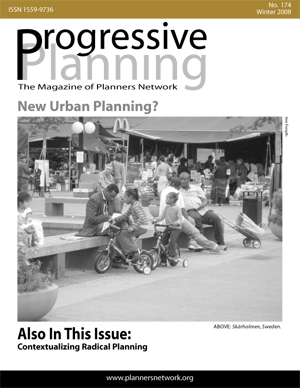By Alejandro Rofman
In 1977, in the midst of Argentina’s military dictatorship, a group of mothers of young people who were disappeared by the military began to raise their voices, demanding to know the whereabouts of their children and to reintegrate them into society. The children were political and social militants captured by the armed forces during the long night of a brutal repression and no one knew whether they were alive, and if so, where they were being held as prisoners. The site for their protest was the Plaza de Mayo, right in front of the Presidential Palace in Buenos Aires. Once a week, every Thursday, a group of mothers put forth their demands, challenging the dictatorship, exposing themselves to possible arrest and, as happened with two of the founders, risking their own disappearance.
Over time, the mothers were joined by many other women. From the time the mothers first made their demands, which were never answered, to the reestablishment of democracy at the end of 1983, their protest was a valuable model for exposing the bloody dictatorship and the violations of basic human dignity. The experience, which did not include a single shout or aggressive action, became the silent and permanent voice for denunciation of the military government.
The demands began to change during the democratic period. Besides demanding the return of the tens of thousands of detained and disappeared, the mothers demanded, during their weekly meeting and elsewhere, that those responsible for torture, disappearances and crimes against humanity be brought to judgment.
At the beginning of the current decade, the mothers put forth another new demand. They decided to establish a Popular University that would create graduates dedicated to affirming the importance of human rights as defined by the United Nations. In 2006, the university was officially recognized by the government and is now graduating specialists in diverse disciplines in programs that are closely tied to the principles that the mothers have defended. At the same time, the national government gave the mothers permission to establish an AM radio station. And this year, the association, which has continued to struggle actively for prosecution of all those responsible for the dictatorship’s genocide, added a new dimension to its important work: collaborating with community organizations to transform the urban habitat.
In a public competition, the association won the right to build a housing complex for residents of slums and marginal housing in Buenos Aires. Working in solidarity with the residents of the neighborhood, they were trained in construction and, together with specialists from the university, are building 432 housing units at a much lower cost than traditional contractors, and with the full participation of the future residents, who are organized into a cooperative. By the end of 2007, the association had contracted for a total of 1,500 single-family housing units and developed plans for schools, day care centers and recreation centers. Agreements with national and local governments incorporate training in construction skills, which allows future residents to discuss and decide on the design and to be paid for their labor.
The program is participatory and non-profit—it does not exploit labor as self-help programs usually do, and it has excellent prospects for the future. The most significant long-term program calls for building at least 5,000 housing units using this cooperative model in the most depressed area of Buenos Aires.
This cooperative effort is the most recent advance in the process of transformation of the Association of the Mothers of Plaza de Mayo, led by Hebe de Bonafini, from a political organization to save lives to a social organization that builds a new society. Thus it demonstrates what people can achieve when they decide to take a road distinct from capitalist accumulation in order to provide an essential public good—habitat for people.
Alejandro Rofman is professor emeritus at the University of Buenos Aires, Argentina.
